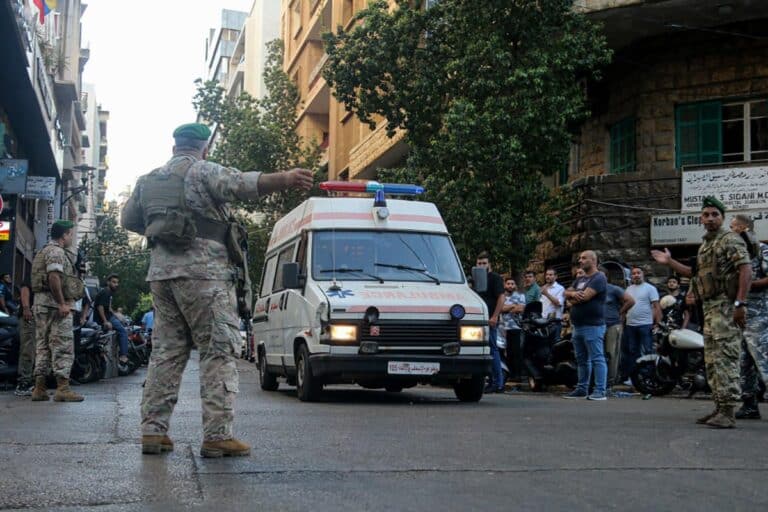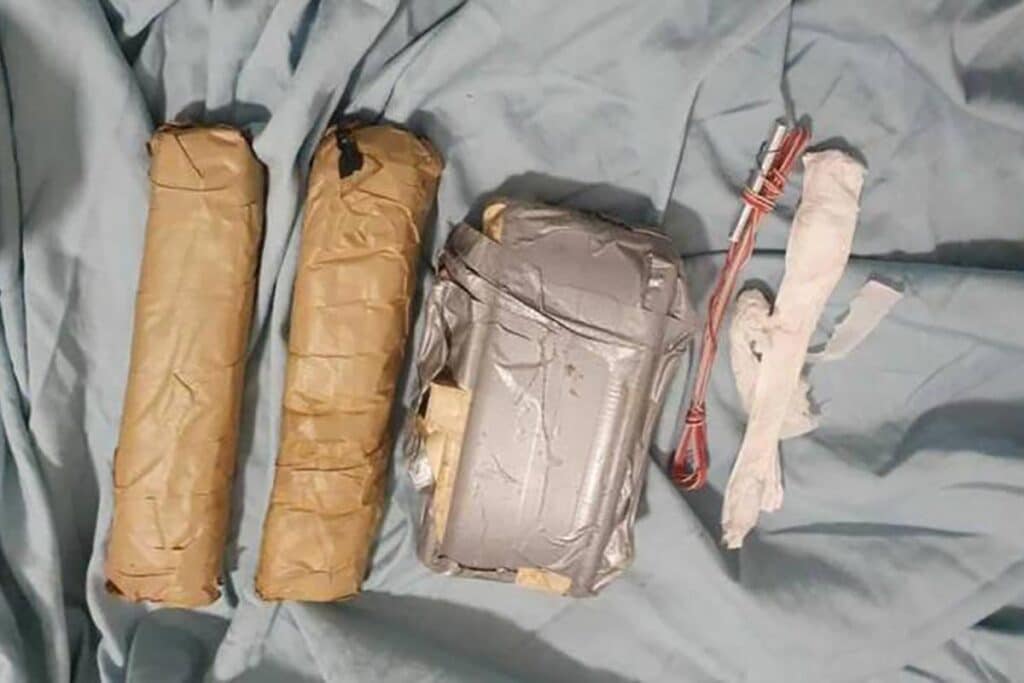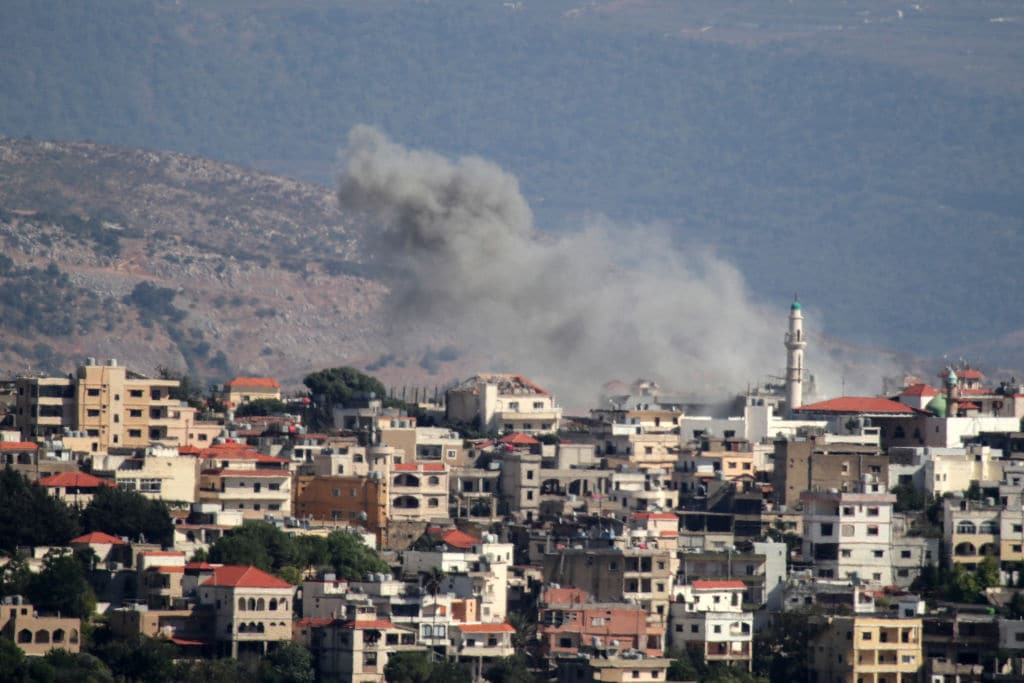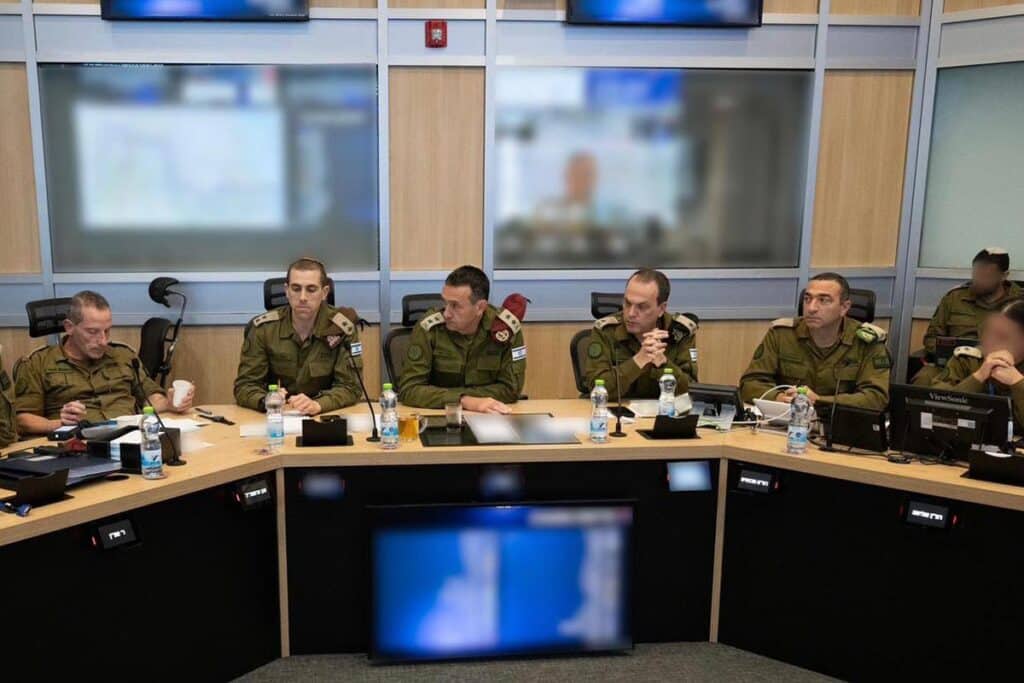
Panic and paranoia swept Lebanon on Tuesday after pagers used by Hezbollah to communicate exploded across the country, injuring thousands of the terrorist movement’s personnel. Just a day later, another wave of explosions swept the country as Hezbollah’s walkie-talkies detonated, injuring hundreds more.
Hezbollah blamed Israel for the explosions, although Israel has not claimed responsibility.
An explosive message
On Tuesday afternoon, explosions were reported in the Dahieh suburb of Beirut and in Damascus, as well as in several other locations across Lebanon.
בסופר ובחנות הירקות: תיעוד נוסף של מכשיר קשר מתפוצץ לפעילי חיזבאללה בכיס@anastasia___stu @OmerShahar123 pic.twitter.com/OcjQsGLhvv
— כאן חדשות (@kann_news) September 17, 2024
It soon became apparent that pagers that Hezbollah used for secure communications had suddenly exploded, injuring anyone carrying them.
According to initial reports, the pagers were only recently bought by Hezbollah. How exactly they were made to explode remains unclear, but reportedly, the pagers received a message right before exploding, which likely triggered the blast. Some reports on Tuesday evening claimed that Israel planted small explosives in the pagers before they were delivered to Hezbollah.
Videos from supermarkets in Beirut showed the pagers detonating on several people carrying them. People walking near the terrorists appeared to be uninjured.
As of Tuesday night, at least 2,800 people in Lebanon had been reported injured, and at least eight had been killed. Two hundred of those injured were in critical condition.
The Iranian ambassador to Lebanon, Mojtaba Amani, was superficially injured by the explosions, according to the Iranian embassy in Beirut. Amani’s bodyguards were also reportedly injured. It is unclear if it was Amani or one of his bodyguards who was carrying a pager.
انفجـارات جديدة تضرب الاجهزة اللاسلكية في مناطق لبنانية عدة pic.twitter.com/L3ZVKYcZ7D
— Al Jadeed News (@ALJADEEDNEWS) September 18, 2024
On Wednesday afternoon, another wave of explosions was reported across Lebanon as walkie-talkies used by Hezbollah detonated suddenly. Over 400 people were injured and 14 others were killed by the blasts.
In light of the two attacks, Hezbollah reportedly switched to using only landline phones and messengers on motorcycles as of Wednesday.
Attack came after Hezbollah attack thwarted against former senior Israeli official
The explosions in Lebanon came just a few hours after the Shin Bet – Israel’s internal security service – announced that it had thwarted an attempted bombing targeting a former senior Israeli defense establishment official. The attack was planned for the coming days.
The Shin Bet did not reveal the identity of the official being targeted in the attack.

The agency did reveal, however, that an explosion reported in Yarkon Park in Tel Aviv last September was a failed bombing attack that was also organized by Hezbollah in an attempt to target an Israeli official.
It is somewhat noteworthy that the First Lebanon War in 1982 was sparked by the attempted assassination of Israel’s ambassador to the United Kingdom.
Hezbollah warns: Israel will be punished
Hezbollah warned that Israel would “certainly receive its just punishment” for the attack, stressing that it held the Jewish State “fully responsible” for the explosions.
“This treacherous and criminal enemy will certainly receive its just punishment for this sinful aggression, whether it expects it or not, and God is witness to what we say,” said Hezbollah.
Hussein al-Khalil, Nasrallah’s political aide, warned Tuesday evening that Hezbollah “will respond soon,” adding that Israel should expect “everything” after such an attack.
The Kataib Hezbollah militia, another Iran-backed militant group based in Iraq, expressed support for Hezbollah Tuesday evening, claiming it was ready to send militants, equipment, and support to Lebanon.
Tensions were already on the rise before the attack
Even before the explosions were reported in Lebanon, Israeli media reported that Prime Minister Benjamin Netanyahu and other senior officials were holding intense discussions concerning the fight against Hezbollah.
Those discussions continued after the attack in Lebanon, with Israel’s national broadcaster, KAN, reporting that the defense establishment believes that Hezbollah is preparing to launch a military operation against Israel. Senior officers were called to the Kirya military headquarters for a special meeting on the subject Tuesday afternoon, according to the report.
Tensions between Israel and Hezbollah have already been rising for weeks, with increased pressure placed on the Israeli government to act more strongly against the terrorist group.

Since Oct. 8, Hezbollah has launched thousands of missiles and drones toward northern Israel, forcing tens of thousands of Israelis to evacuate their homes. Residents of the north have recently increased their calls for an operation against Hezbollah to allow them to return home safely.
On Tuesday morning, the Israeli government announced that it had added “returning the residents of the north securely to their homes” to the list of official goals of the war.
What comes next?
After such a big attack, the big question is: What happens now?
Part of the answer depends on the purpose of the pager explosions.
The attack may have come as a response to the Hezbollah assault thwarted earlier by the Shin Bet, but it also may have been meant to serve as the opening blow of a new operation against the terrorist movement.
Hezbollah’s capabilities appear to have been heavily disrupted and Lebanon was plunged into chaos Tuesday, but several analysts noted that the advantage provided by disrupting Hezbollah’s communications and operations would be limited in terms of time.
If Israel was hoping to use the attack to launch a larger operation while Hezbollah was in chaos, it had a limited amount of time to do so before the terrorist movement regrouped.
Other analysts noted that the attack may have been meant as a deterrent message to Hezbollah, showing how far Israel can reach to push off a conflict.
In any case, the ball is now in Hezbollah’s court, and what happens next will likely depend on how the terrorist group retaliates.
Hezbollah’s last response to a major Israeli strike was following the assassination of Fuad Shukr, Hezbollah’s top military commander.
That response consisted of a barrage of hundreds of rockets and several drones and didn’t significantly differ from Hezbollah’s responses for many lower-ranking figures. The retaliation was seen by many as a sign that Hezbollah was attempting to avoid a larger war and was exercising relative restraint.
In the weeks since, though, the situation has only escalated as the terrorist group has started firing deeper into Israel, including at communities that haven’t been evacuated.
Additionally, since Hezbollah’s last response didn’t deter this most recent attack and because the assault was so widespread, the terrorist movement is likely feeling more pressure to act strongly this time.
Lebanese Foreign Minister Abdallah Bou Habib told The New York Times on Tuesday that the country was bracing for a major retaliation by Hezbollah, stressing “this escalates this war.”
How exactly Hezbollah’s response will look remains unclear, but in Israel, officials are preparing for a significant escalation.
On Tuesday evening, IDF Chief of Staff Herzi Halevi held a situation assessment with the rest of the IDF General Staff, with an emphasis placed on preparedness for offense and defense on all fronts.

The IDF Spokesperson’s Unit stressed, however, that Home Front Command directives concerning life in Israel remained unchanged.
Meanwhile, Israeli ports and local authorities raised their level of alert in preparation for a possible escalation. Several international airlines have canceled flights to Israel for the next two days.
Hezbollah often takes its time with its response so even if it does decide to retaliate, it could be a while until it happens, especially since it’s been caught by surprise with this attack.
There is the possibility, however, that this was only the beginning from Israel’s side and that there’s more being planned regardless of whether Hezbollah responds or not.
Security consultations have been ongoing non-stop for the past two days about how to move forward in the north. The cabinet decision on Tuesday morning makes it clear that the government and military have realized that something has to change in order to bring residents of the north safely back to their homes.
Originally Published Sep 17, 2024 04:59PM EDT
